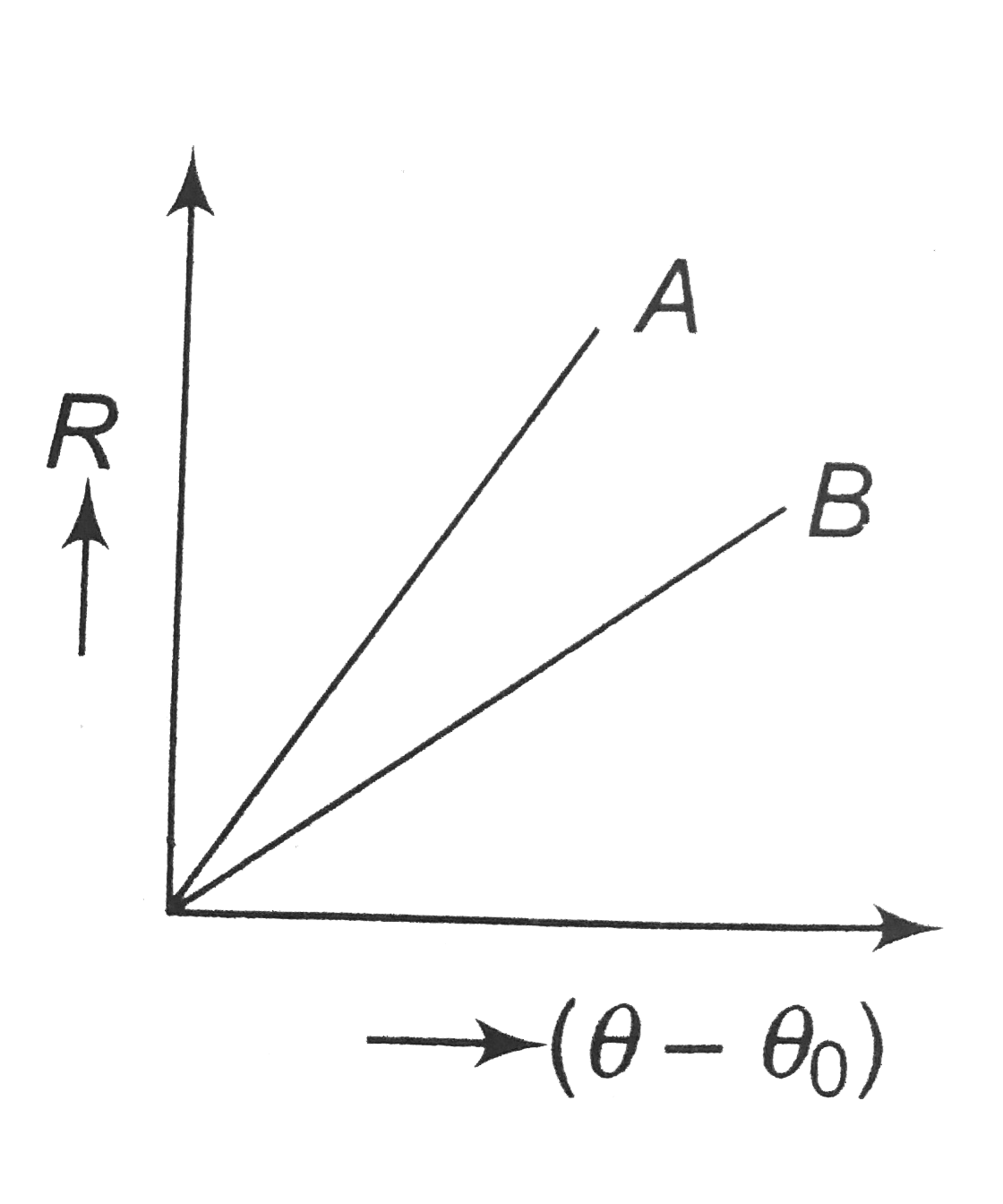Two circular disc A and B with equal radii are blackened. They are heated to same temperature and are cooled under identical conditions. What inference do your draw from their cooling curves?

A and B have same specific heats
specific heat of A is less
Specific heat of B is less
Nothing can be said
The correct Answer is:B
According to Newton's law of cooling rate of cooling is given by (−dTdt)=eAσmc(T4−T40)
Where C is specific heat of material or (−dTdt)∝1c
i.e., rate of cooling varies inversely as specific heat, from the graph, for A rate of cooling is larger. therefore, specific heat of A is smaller.
Topper's Solved these Questions
- BOOK - RESONANCECHAPTER - HEAT TRANSFEREXERCISE - Exercise-31videos
HEAT TRANSFER
- BOOK - RESONANCECHAPTER - HEAT TRANSFEREXERCISE - Advancel Level Problems17videos
HEAT TRANSFER
- BOOK - RESONANCECHAPTER - HEAT TRANSFEREXERCISE - Exercise-21videos
HEAT TRANSFER
- BOOK - RESONANCECHAPTER - GRAVITATIONEXERCISE - Exercise21videos
GRAVITATION
- BOOK - RESONANCECHAPTER - KINEMATICSEXERCISE - Exercise65videos
KINEMATICS
Similar Questions
Two solid spheres of radii 5cm and 3cm are made of same material and have similar surface. The spheres are raised to the same temperature and then allowed to cool under identical conditions. The ratio of rate of fall of temperature is
View SolutionA solid copper cube and sphere, both of same mass & emissivity are heated to same initial temperature and kept under identical conditions. What is the ratio of their initial rate of fall of temperature ?
View Solution
Knowledge Check
- Question 1 - Select One
Two solid spheres of radii R1 and R2 are made of the same material and have similar surfaces. These are raised to the same temperature and then allowed to cool under identical conditions. The ratio of their initial rates of loss of heat are
AR1R2BR2R1CR21R22DR22R21 - Question 2 - Select One
Two solid spheres of radii R1 and R2 are made of same material and have similar surface. The spheres are raised to the same temperature and then allowed to cool under identical conditions. Assuming spheres to be perfect conductors of heat, their initial ratio of rates of loss of heat is:
AR21R22BR1R2CR2R1DR22R21 - Question 3 - Select One
A sphere, a cube, a cone and a thin disc all made up of the same material and all have the same mass. If they are heated to the same temperature θ and allowed to cool in identical surrounding then the initial rate of cooling is maximum for
AsphereBcubeCdiscDcone
A cube and a sphere of equal edge and radius, made of the same substance are allowed to cool under identical conditions. Determine which of the two will cool at a faster rate.
View SolutionTwo solid spheres, one of aluminium and the other of copper, of twice the radius are heated to the same temperature and are allowed to cool under the identical conditions. Given that specific heat of aluminium is 900J/kg K and that ofcopper is 390J/kg K. Specific gravity of aluminium and copper are 2.7 and 8.9 respectively.
initial rates of fall of temperature, and
the initial rates of loss of heatView SolutionA cube, sphere and a cylinder made of same material shown in figure are allowed to cool under identical conditions. Determine which of these will cool at a faster rate?
 .View Solution
.View SolutionA sphere, a cube and a circular disc, made of same material and of same mass are heated to same temperature and placed in same surrounding. Which one will have fastest rate of cooling and which one will have slowest ?
View SolutionEqual volumes of two liquids A and B are heated to the same temperature and left in the atmosphere in identical vessels.
View Solution
